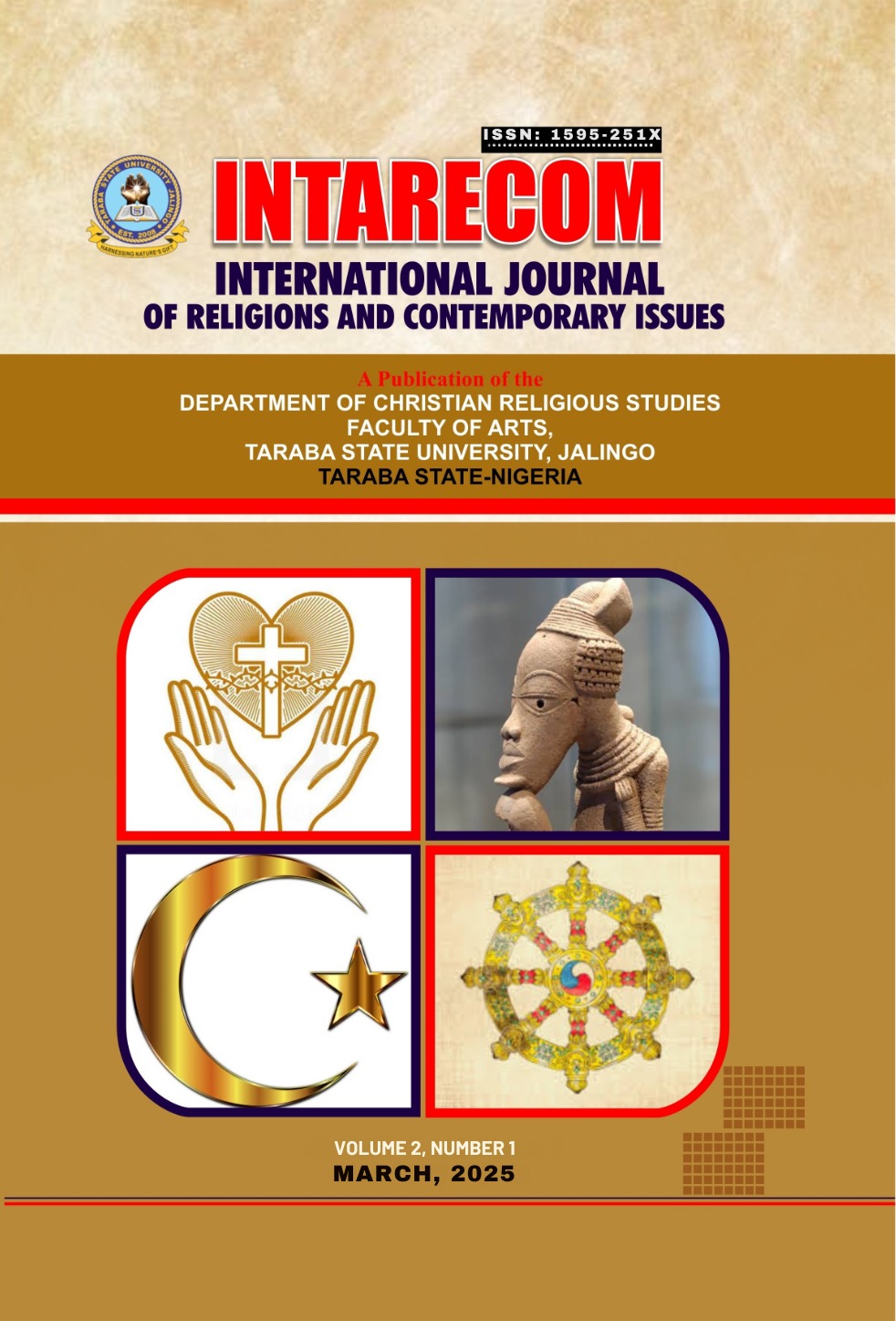PRESERVING THE FABRIC OF NIGERIAN SOCIETY: COUNTERING RELIGIOUS FUNDAMENTALIST NARRATIVES
Keywords:
Religion, Fundamentalism, Karl Marx, Nigeria, UnrestAbstract
There has been an unprecedented spike in incidences of violent extremism which has overthrown world peace, and with disastrous effects for human society at large. Nigeria’s great cultural diversity is challenged by the rising tide of religious extremism, which imperils the nation’s social cohesiveness and stability. The last forty years of her history have been plagued by several instances of turmoil. But notable among these is religiously generated violence which in most situations is either intra or inter-religious in nature. This article investigates the destructive impact of religious extremism on Nigeria’s pluralistic society, analysing its basic origins, manifestations and implications. In most cases, these extremists often base their activities on religious ideals, and possibly also view themselves as ‘earthly armies’ fighting for the cause of a divine being and with the hope of some celestial benefits. These experiences which have frequently shown religion as a monster thing have further raised the crucial question of religion as an agent of empowerment or a tool of oppression in a religiously saturated Nigerian culture. Through a critical review of current literatures and
empirical research, this study suggests solutions for moderating religious extremism, developing inclusive citizenship, and fostering a culture of tolerance and understanding among the many religion communities in Nigeria. The study builds upon past studies on
religion, identity and nation building and adds to the preservation of Nigeria’s social fabric and the promotion of harmonious, egalitarian society for all citizens. This study aims to investigate the manipulation of religion by certain religious actors in Nigeria and to analyse its consequences on the Nigerian Fourth Republic. This study employs historical methodologies for data collection and analysis as a form of qualitative research. Research indicates that doctrinal dissatisfaction, conflicting inter- and intra-religious doctrines, and systemic failures, among other factors, have perpetuated the rise of religious fundamentalism in Nigeria. The work, consequently, advocates for a more radical strategic approach in policy formulation and implementation to address this escalating trend in Nigeria.

